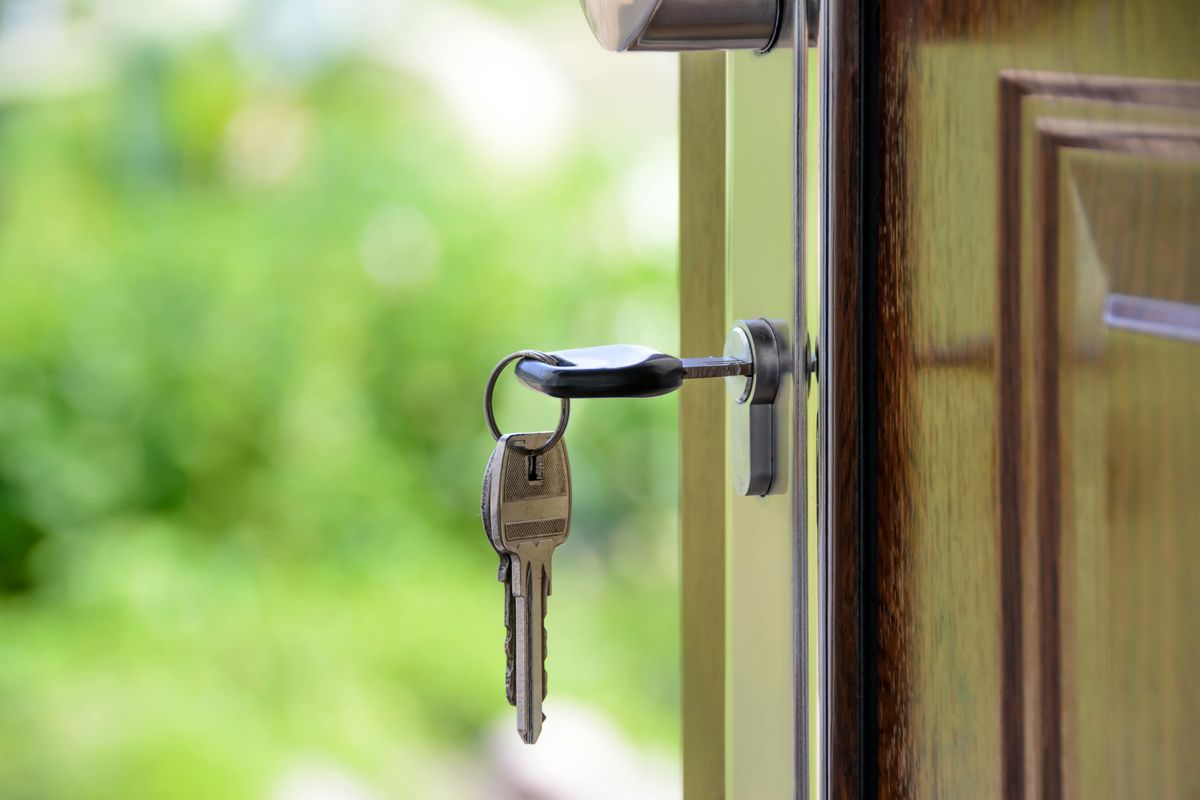The Ultimate Guide to Room Rental Agreements in Denmark
In this ultimate guide, we'll cover everything you need to know about rental agreements for renting out a room in Denmark, including the legal requirements, common rental terms, and important considerations for you as a landlord.

Welcome to our comprehensive guide on rental agreements in Denmark, tailored specifically for landlords. Whether you're a seasoned property owner or new to the realm of leasing, this guide is designed to navigate you through the intricacies of Danish rental law and best practices. From understanding your legal obligations to crafting a robust rental agreement, we cover all the essentials you need to know to manage your rental property effectively and legally.
This guide will also provide practical advice on how to maintain a positive relationship with your tenants and ensure that both parties' rights and responsibilities are clearly understood and respected.
By the end of this guide, you should know all about:
- Important factors to keep in mind when renting a room in Denmark
- Do I need any permissions to rent out a room in Denmark?
- What are the benefits of having a room rental agreement?
- What are some of the common terms in a room rental agreement in Denmark?
- What are the key components of the rental agreement in Denmark?
- What rent should I charge when renting out a room in Denmark?
- How much deposit should I ask for when renting out a room in Denmark?
- What is the best rental period for room rentals in Denmark?
- What is the move-in report? Is it required for a rental lease in Denmark?
- What is a roommate agreement and should I include it when renting out a room in Denmark?
- What is the notice period when renting out a room in Denmark?
- What should I do if my room rental agreement in Denmark is breached by the tenant?
- What is tenancy protection, and what should I know about it as a landlord in Denmark?
- Final tips when renting out a room in Denmark
Important factors to keep in mind when renting a room in Denmark
Considering renting out a room in your Danish apartment? Whether you're experienced or new to property leasing, the Danish rental market can be intricate due to strong tenant protection laws, detailed rental agreements, and municipal regulations.
For landlords, it's crucial to craft legally compliant rental contracts that detail monthly rent, lease duration, notice periods, deposit amounts (up to three months' rent), and prepaid rent. These agreements should also outline both tenant and landlord maintenance obligations and specify utility management. Although not mandatory, conducting property inspections and preparing move-in reports can prevent disputes over property conditions. Landlords must also ensure their rental agreements comply with local laws, particularly tenant protections against unfair evictions or unauthorized rent increases. Registration requirements vary by municipality, often necessitating landlords to register their rental to ensure compliance with housing conditions and safety standards.
Rent control, especially significant in cities like Copenhagen, aims to keep housing affordable. Rentals in buildings constructed before 1992 are typically under rent control, with rents based on operational costs and reasonable profit or market value comparisons. Tenant rights in Denmark are robust, protecting against arbitrary eviction and ensuring tenancy continuity even with property ownership changes. Landlords must provide proper notice and cannot demand property access without arranging it beforehand.
For tenant screening, landlords use the CPR number to check potential tenants' financial stability and rental history. This assists in ensuring that tenants can fulfill their lease obligations.
Do I need any permissions to rent out a room in Denmark?
Considering renting out a room in Denmark? This exciting opportunity not only offers extra income but also immerses you in the city's vibrant lifestyle. However, before advertising your space, it's crucial to understand and secure the necessary permissions to ensure your rental complies with local regulations and laws.
In Denmark, navigating the rental process involves more than just finding a suitable tenant; you must adhere to specific legal and safety requirements to make your venture legal, safe, and profitable. Familiarize yourself with the Danish Rental Act, which governs both residential and commercial rentals, detailing landlords' and tenants' rights and obligations. This includes adhering to municipal regulations, ensuring your property meets health, safety, and fire standards, and managing taxation and insurance implications.
For instance, if you're planning on short-term rentals, such as using Airbnb, be aware of limits like the 70-day annual rental cap. Also, if you're a tenant looking to sublet, ensure you're allowed to do so under your lease agreement and be mindful of limits on the number of rooms and total occupants.
Ensure your property meets all necessary safety standards, from fire escape routes to proper waste disposal. Landlords typically need comprehensive insurance to cover potential damages, while tenants are advised to have personal contents insurance.
What are the benefits of having a room rental agreement?
In Denmark's dynamic rental market, creating a robust rental agreement is essential for both landlords and tenants, ensuring clear communication and legal compliance. This agreement serves as a legally binding document outlining terms such as the rental period, rent amount, and security deposit, alongside property maintenance responsibilities. With about 59.6% of Danish leases set for 12 months, a well-structured agreement helps prevent disputes and maintain order.
These agreements must comply with the Danish Rental Act, safeguarding tenant protection with stipulations on rent and deposit limits, typically up to three months' rent for each, and explicit lease duration and maintenance obligations. Important for resolving any disputes, the agreement details procedures for property inspections and move-in reports.
Clarity in these terms aids in avoiding conflicts, especially financial misunderstandings or during lease terminations. The standard notice for termination usually stands at three months, allowing smooth transitions for both parties. Additionally, ensuring your property meets safety and health standards is crucial, addressing requirements like fire safety and proper living conditions.
What are some of the common terms in a room rental agreement in Denmark?
Welcome to the unique and sometimes perplexing world of renting out a room in Denmark, where rental agreements might feel like they're written in a foreign language! Here are all the essential legal terms you'll come across, whether you're a landlord or tenant. Understanding this terminology isn't just about mastering complex legal jargon—it's crucial for preventing misunderstandings, costly errors, and unnecessary legal troubles.
- Lejer (Tenant): The individual renting the room.
- Udlejer (Landlord): The property owner.
- Lejemål (Rental Property): The room and shared spaces being rented.
- Husleje (Rent): Payment made for room use, outlined in the contract with details on due dates and inclusions.
- Depositum (Deposit): A security deposit, up to three months' rent, held against damages or unpaid rent.
- Forudbetalt leje (Prepaid Rent): Rent paid in advance.
- Opsigelsesvarsel (Notice Period): Required notice for terminating the lease.
- Indflytningsrapport and Fraflytningsrapport (Move-in/Move-out Report): Documents detailing the property's condition at the start and end of tenancy.
- Vedligeholdelse (Maintenance): Divided responsibilities for property upkeep.
- Lejeperiode (Lease Term), Fornyelse (Renewal), Lejeregulering (Rent Adjustment), and Fremleje (Subletting): Specific terms regarding the duration, renewal, rent changes, and subletting conditions.
What are the key components of the rental agreement in Denmark?
As a landlord in Denmark, creating a clear and comprehensive rental agreement is vital for protecting your property and fostering positive tenant relationships. Denmark's rental market heavily emphasizes tenant rights, making it crucial for landlords to draft meticulous agreements.
A room rental agreement is a legally binding contract that stipulates terms for renting a room within a property, commonly used in shared housing or student accommodations. This agreement should detail tenancy duration, rent, security deposit, utility payments, and house rules.
Given the high demand for room rentals, especially in university cities and densely populated areas like Copenhagen, understanding these agreements is crucial for landlords. Key components include:
- Parties Involved: List full legal names and contact information for all parties.
- Property Description: Include a detailed description of the property and amenities.
- Rental Term: Define the lease duration and conditions for renewal.
- Rent Details: Clearly state the rent amount, due dates, and payment methods.
- Security Deposit: Specify the amount and conditions for the deposit's return.
- Maintenance and Repairs: Outline responsibilities for both landlord and tenant to maintain the property.
What rent should I charge when renting out a room in Denmark?
If you own property in Denmark and find yourself with extra space, deciding the right rent amount can be a complex but crucial task for attracting ideal tenants and securing steady income. Renting out a room in your home is not only profitable but also requires careful consideration of several factors including rent amount, lease duration, the rental agreement specifics, and the type of tenant you prefer. Here are some factors you should keep in mind when deciding the rental amount:
- Location: Urban areas like Copenhagen typically have higher rents due to amenities and infrastructure. Proximity to universities can inflate prices due to demand from students and staff.
- Size and Condition: Larger, well-maintained rooms fetch higher rents. Updated features or luxury additions can also justify premium pricing.
- Market Rates and Competition: Research rental rates for comparable properties in your area to ensure competitive pricing.
- Utilities: Including utilities might allow higher rents. For example, rooms with utilities might rent for around 5,000 DKK, whereas those without could go for 4,000 DKK plus separate utility costs.
- Furnishings: A furnished room can significantly increase rent, particularly appealing to expatriates or students looking for short-term, convenient options.
How much deposit should I ask for when renting out a room in Denmark?
Understanding the deposit is crucial whether you're a landlord seeking to protect your investment or a tenant searching for a new home. In Denmark, the security deposit for a room rental can be up to three months' rent. Additionally, landlords may request prepaid rent, also up to three months, which covers the lease's final months. Including the first month's rent paid upfront, initial costs can sum up to a significant amount. For example, for a monthly rent of 4,000 DKK, the total upfront cost could reach 28,000 DKK—comprising the first month's rent, a security deposit, and prepaid rent for the last three months.
This deposit covers repairs for damages beyond normal wear and tear, maintenance if the property is neglected, unpaid rent, or utility bills. To ensure fairness, both landlords and tenants should document the property's condition at move-in and move-out. This helps prevent disputes over the deposit at the lease's end.
Landlords are obligated to return the deposit after the lease if the property is in good condition, barring any deductions for outstanding costs. The process should be transparent, with detailed justifications for any deductions. Generally, the deposit should be returned within one to three months after the tenancy ends, allowing time for necessary repairs or settling final bills.
What is the best rental period for room rentals in Denmark?
Denmark’s rental market is bustling, particularly in cities like Copenhagen, where high property prices and rising interest rates make renting a favorable option. This has led to high occupancy rates and increased demand across all demographics. Whether you're an experienced host or listing your first property, understanding the typical rental periods is essential for securing the right tenant and ensuring smooth tenancy. Key rental periods in Denmark:
- Fixed-Term Leases: Often set at one year, these leases provide security for both tenants and landlords, balancing flexibility with stability, which is culturally and legally preferred in Denmark.
- Indefinite Leases: After an initial term, leases often convert to indefinite agreements, continuing until either party opts for termination.
- Short-Term Leases: Suitable for temporary accommodations or for those needing flexibility, such as students or transient workers, these can last from a few months to under a year.
- Longer Fixed Terms: Some properties, especially those that are newly built or extensively renovated, might require minimum leases of three to five years to ensure a return on investment.
Choosing the length of your rental period should consider your objectives (steady income vs. flexibility), tenant demand in your area, local market trends, and the management effort required. Familiarizing yourself with Danish rental laws will also help you align your rental strategy with legal standards and tenant expectations.
What is the move-in report? Is it required for a rental lease in Denmark?
As a landlord, starting off on the right foot with your tenants is essential for a smooth tenancy, and the move-in report or "indflytningsrapport" is vital in establishing a clear and fair foundation for your relationship. This document records the property's condition at the start of the tenancy, setting the stage for mutual expectations and safeguarding your investment.
- Purpose: Documents the property’s condition at tenancy start, helping avoid future disputes over damages.
- Contents: Detailed descriptions of each room’s condition, including walls, floors, and fixtures, often supported by photos.
- Process: Conducted jointly by landlord and tenant before move-in, ensuring both agree on the property's state, which is then signed off by both parties.
Understanding and implementing a thorough move-in report not only protects your property but also fosters a transparent and professional relationship with your tenants, setting a positive tone from day one.
What is a roommate agreement and should I include it when renting out a room in Denmark?
In Denmark's heavily regulated housing market, a roommate agreement is crucial for setting clear expectations and safeguarding both landlord and tenant rights. This blog aims to guide you through creating a comprehensive and legally sound roommate agreement, beneficial for both seasoned landlords and newcomers.
A roommate agreement outlines how roommates will share a rental property, detailing each person’s responsibilities, rights, and obligations. It covers aspects such as rent division, utility payments, and rules about common areas, which helps prevent misunderstandings and conflicts. These agreements enhance stability by clearly defining terms and conditions, reducing tenant turnover, and fostering a more consistent and conflict-free living environment. The roommate agreement typically includes details on the parties involved, property description, rent specifics, security deposit, utility handling, house rules, privacy, the agreement’s term, and conflict resolution methods.
In Denmark, roommate agreements are considered legally binding if properly executed and signed by all parties, adhering to Danish law and housing regulations.
What is the notice period when renting out a room in Denmark?
In Denmark, understanding notice periods is crucial for landlords to navigate their legal responsibilities and uphold tenant rights effectively. Danish rental law offers strong tenant protections, including specific notice requirements before lease terminations, crucial for maintaining good landlord-tenant relationships and avoiding legal issues. Here is an overview of the types of rental agreements and notice periods in Denmark:
- Fixed-term Leases: Often used for temporary housing, these leases expire automatically at the end of the term without a need for notice.
- Indefinite Leases: More common, these agreements run indefinitely until terminated by either party, with tenants typically given a three-month notice period. Landlords must provide a valid reason for termination and notice periods can extend up to one year depending on the tenant's duration in the property.
If you're a landlord and want to give your tenant a notice that they'll need to vacate the property, ensure written notices include necessary details like the termination date and reasons if required by law. You'll also need to conduct a final property inspection to compare its current state against the move-in report, determining if any deposit should be withheld for damages.
What should I do if my room rental agreement in Denmark is breached by the tenant?
Renting out a room or property in Denmark can be lucrative, but dealing with tenant agreement breaches can be challenging. It's crucial for landlords to understand the nuances of notice periods under Danish rental law, which provides substantial protections for tenants, including specific notice requirements before lease terminations.
If a tenant breaches a rental agreement, the process usually follows these steps:
- Communication and a Verbal Warning: The landlord communicates the breach clearly to the tenant, and issues a verbal warning.
- Written Warning: If a verbal warning doesn't suffice, the landlord may have to issue a documented, written warning, mentioning the nature of the breach and the consequences that will occur if it happens again.
- Mediation: If the tenant continues to breach their contract in spite of the mentioned warnings, the landlord may then resort to mediation via a third-party.
- Rental Tribunal: If mediation fails, the next step is to contact the Rent Tribunal, a judicial body in Denmark that resolves disputes pertaining to rent.
- Termination of Lease and Eviction: Continual breach of the contract in spite of an order issued by the Rental Tribunal means the landlord now has to take legal steps towards terminating the lease.
- Eviction: If a tenant fails to leave the property following the termination of the lease, the landlord may have grounds to get an eviction order.
What is tenancy protection, and what should I know about it as a landlord in Denmark?
If you're considering renting out a room in Denmark, it's crucial to understand the country's strong tenancy protections, which ensure fairness and security for both landlords and tenants. Denmark's rental system is regulated by the Danish Rental Act, which ensures tenants have safe, well-maintained homes and landlords can operate their properties effectively within a clear legal framework.
The law governs lease drafting, permissible lease contents, rent setting and regulation, and conditions for tenancy termination. Rent increases are usually linked to a cost-of-living index, and strict criteria must be met for evictions, fostering tenant security. This comprehensive approach minimizes conflicts and enhances the predictability of rental relationships.
For landlords, the system offers a balanced view. Evictions are heavily regulated, favoring the tenant unless substantial reasons like rent non-payment or significant property damage occur. Rent control primarily targets older buildings to keep housing affordable, with rent adjustments closely monitored to prevent excessive charges.
Final tips when renting out a room in Denmark
This guide offers essential tips for effectively managing rental properties in Denmark, whether you're a seasoned owner or new to the rental scene.
- Draft a Proper Lease: Start by drafting a legally compliant lease agreement. Include clear terms regarding rent increases, maintenance obligations, tenant and landlord rights to prevent disputes and misunderstandings. Detail rental amount, security deposit conditions, tenancy terms, and property maintenance rules.
- Setting and Securing Rent: You can ask for a security deposit and prepaid rent, each up to three months' rent, providing financial security against damages or early lease termination by the tenant.
- Tenant Screening and Communication: Implement a thorough screening process assessing potential renters' financial stability, rental history, and character references. This includes verifying income, conducting credit checks, and ensuring compatibility with fair housing laws.
- Understanding Rental Caps and Regulations: Be aware of rental regulations that vary between regulated and free market properties. Stricter rental caps apply to older properties to keep housing affordable, while newer properties offer more flexibility in rent setting.
- Regular Property Maintenance and Inspections: Conduct regular inspections and maintain the property to prevent issues from escalating. Schedule routine maintenance checks and respect tenant privacy by providing advance notice for inspections.
- Protecting Deposits and Fair Handling: Document the property condition meticulously at move-in and move-out to manage security deposits fairly. Handle deposits according to legal requirements and provide detailed documentation for any deductions.
We hope you found our detailed guide to room rental agreements in Denmark helpful. By now, you should have a solid grasp of both the legal and practical aspects of room rentals, positioning you for a smooth and satisfying rental journey. Additionally, you should be thoroughly familiar with the rental process from beginning to end and feel confident in handling any challenges that may come your way when renting out your room.
Renting out your spare room can be a great way to earn additional income, and it's crucial to approach this responsibly and within the bounds of the law. By adhering to the guidelines we've provided, you can offer a room for rent, enjoy some company at home, and ensure a safe and pleasant experience for your tenant.
If you want to rent out a room in your apartment or house and love a smooth rental process, you can learn more about the services offered at Hemavi.




Comments ()